Elon Musk vs. The Nation-States
The future battles between States and the Network
This article is a departure from the series currently being published on How to break the shackles of monocountrism and become free, but a news item pushed me to publish this article (which is placed much later in my book - and therefore should have been published here in about 6 months' time): Elon Musk's decision to close the X/Twitter branch in Brazil.
(as well as the arrest of Pavel Durov, creator of Telegram, in France, as I was finalizing this article. I'll say a few words about it at the end).
So what happened? And how is it representative of the battles to come between the States and the Network?
Will X/Twitter be cut off in Brazil? And how might Elon Musk fight back? And what's my prediction of the role he might play in the Network's battles?
That's what we're going to explore in this article: fasten your seatbelts, let's go!
Starlink vs. Nation-States
Despite all the ways in which the Internet disrupts their powers, States still have considerable power over it as a last resort: they can shut it down.
Of course, to do so would be a magnificent application of the 5th principle to be learned from history - states that win temporarily by successfully banning or stifling a technology, lose in the long run.
But they can do so either partially or temporarily.
Partial Ban
By censoring a particular site or service.
For example, Iran banned Telegram in 20181, Turkey banned Wikipedia for 3 years2, Russia blocked Linkedin in 20163 and its access had still not been restored in 20244.
But, as we saw, this is easy to circumvent with Tor or a VPN. However, it does work for people who don't know how to use these services.
There's also the option of a Chinese-style Great Firewall, which partially applies the 5th principle by cutting the population off from a large part of the benefits of the Internet and therefore far from ideal from the point of view of economic growth..
Temporary Ban
Usually during large-scale demonstrations, to prevent demonstrators from coordinating and broadcasting events internationally. Here are a few examples:
Egypt in January 20115 : During Egypt's Arab Spring revolution, Hosni Mubarak's government cut off the Internet for five days.
Iran in November 20196 : During protests against rising petrol prices, the Iranian government ordered a near-total shutdown of the Internet for almost a week. This measure was aimed at limiting coordination between demonstrators and preventing the dissemination of violence perpetrated by the forces of law and order.
India in August 20197 : Following the revocation of autonomy in Jammu and Kashmir, India imposed an Internet blackout that lasted over 175 days, making communication difficult and exacerbating tensions in the region.
Sudan in June 20198 : Following pro-democracy protests, the Sudanese government cut off Internet access throughout the country for over a month. This measure was used in particular to prevent demonstrators from broadcasting images of the violent crackdown by the army, which left over 100 people dead at a sit-in in Khartoum.
Myanmar in February 20219 : After the military coup, the authorities cut off Internet access in several parts of the country to limit communication between opponents of the regime and to control the dissemination of information on the political situation. Those in Rakhine State spent 593 days without Internet.
I could go on and on like this: there were 283 blackouts in 39 countries in 2023 alone10.
So it's a real power that states still have to fight against the Internet.
But will it last?
How Starlink is disrupting this latest monopoly
Starlink is an ambitious project developed by SpaceX, Elon Musk's company, to provide worldwide broadband Internet access via a constellation of thousands of satellites in low Earth orbit.
The main aim is to bridge the connectivity gap in rural and remote areas, and on the seas and oceans, where Internet access is often limited or non-existent.
A secondary, but important, objective is to train the SpaceX team to do as many launches per year as possible, while recovering Falcon rocket stages, honing processes and lowering the cost of access to space11 .
Starlink satellites, positioned at a relatively low altitude, reduce latency compared with traditional satellites, offering a faster, more reliable Internet connection.
At the time of writing, more than 6,000 (!) satellites are already in orbit12 , with a further 6,000 already authorized by US regulators, and up to 42,000 planned for13 (!!).
So how is this disruptive for governments?
Through the potential of having an Internet connection that no longer needs any terrestrial infrastructure, and which therefore goes completely over the heads of governments, who will no longer have any means of cutting off access to the global network.
Quite a vision, isn't it? No more dictatorships that prevent their people from rebelling!
Unfortunately, it's a bit more complicated than that, and there are a number of factors holding this possibility back for now:
The need for ground stations
Yes, satellites need to be connected to ground stations to optimize their operation and connect to the global network14.
However, all Starlink satellites launched since January 2021 are equipped with lasers that enable communication between them, considerably reducing the need for ground stations15.
No stations just below the satellite you're communicating with? No problem, this satellite will just transmit your data via laser to another satellite which is just above such a station.
This means you don't have to have a station in a given country: instead, you can relay data to a station in a friendly country further away, via other Starlink satellites.
Antennas
To use Starlink, you need an antenna.
This antenna can be located visually.
However, the size of antennas has tended to decrease over time: the 1st generation was round and had a diameter of 50 cm, the 2nd generation is a rectangle measuring 59x35 cm16, and the 3rd so-called "mini" generation is a 43x33 cm rectangle designed to be carried in a backpack.
This already means that it's not so easy for a government to spot the latest generation of antennas.
Also, there is already a black market in Starlinks antennas, which are activated in one country that is accepted, then moved to another that is not17. SpaceX is fighting this18, but could choose not to, or to do so selectively.
What's more, in January 2024, 6 satellites were launched that incorporate a mind-boggling new function in terms of its possibilities: the ability to connect directly to conventional smartphones, without going through a specialized antenna19.
After conclusive tests, the company launched a flurry of satellites with this function, and by July 2024 there were already more than 10020, so much so that it is expected to offer a voice and data package in 202521.
So, will it soon be possible for everyone to subscribe to a Starlink global package that will provide telephone and Internet services entirely via satellite?
Yes and no. Yes, because it will be technically possible, but no, because there are limitations, two of which are significant:
This service uses 4G LTE frequencies, which are already taken up by terrestrial operators. SpaceX therefore needs to sign agreements with local operators.
Bandwidth is limited and, for the time being, cannot compete with that of terrestrial operators: the service is designed more to help those who find themselves beyond the reach of traditional networks22.
But it's easy to imagine that technology will progress, and that smartphones in particular will develop new capabilities for connecting to satellites, perhaps with specific frequencies.
It makes more sense to invest in this direction now that a growing constellation of satellites offers this function. Satellites will also improve.
What's more, it's entirely possible that one day Elon Musk will decide to create a smartphone, one of whose features will be the ability to connect directly to Starlink.
So, in the long term, we could well envisage an international satellite voice and data package to rival the current terrestrial networks.
And good luck then to those governments who want to ban this by confiscating smartphones.
Licensing requirements in other countries
Today, SpaceX must obtain a license in each country, for regulatory and radio frequency use reasons.
But this is more a legal requirement than a technical one: if SpaceX wanted to, it could activate its service in a country that didn't allow it.
What am I getting at?
Starlink's technical evolutions clearly point to a relatively near future in which SpaceX will be able to offer Internet access to the population of a country even if its government has forbidden it.
Could it happen?
Elon Musk champions a radical vision of free speech, for better or worse, and regularly battles governments on X/Twitter on the subject.
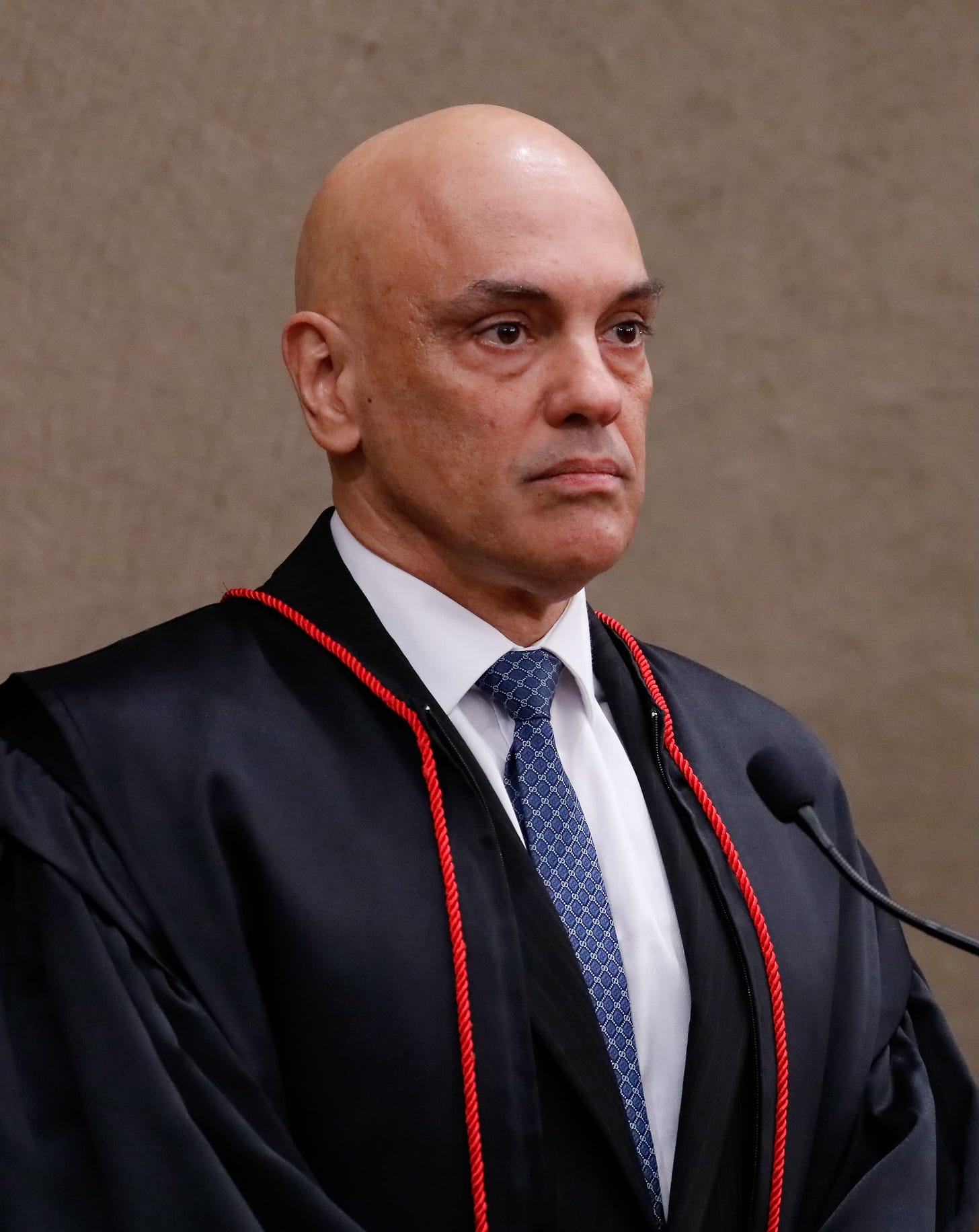
As I said in the introduction, in August 2024 he clashed with Alexandre de Moraes, a judge at the Brazilian Supreme Court, who felt he was overstepping his powers when he asked X to block the accounts of politicians and journalists23. Moraes reacted by opening an investigation against Musk for obstruction of justice, then tried to force Twitter's Brazilian branch to cooperate.
Problem: remember what happened when the French government took Twitter France to court to force Twitter US to provide information? As we saw in this article, the government's case was dismissed, because Twitter France is merely a sales office for Twitter US's advertising services, and is in no way responsible for the content published on the network or its moderation.
It was exactly the same situation in Brazil: however Moraes, apparently scalded by his inability to reach the people responsible, went one step further, outright threatening the head of the Brazilian branch with fines and prison, on a personal level, if X didn't comply24.
Elon Musk reacted by immediately closing X's commercial office in Brazil. He specified that X would remain accessible in Brazil.
We can note 3 things about this interesting battle between Leviathan State and Leviathan Network:
If Moraes is so scalded, it's probably because he's unaccustomed to seeing his elevated power as a Supreme Court Justice thwarted by the Internet Leviathan. It's a frustration he shares with many mono-country judges (and politicians) who are discovering the powerful counter-power of the Internet.
One effective way for a Network instance to fight a threatening state is to remove any physical incarnation in that state. The Network doesn't really need this incarnation; it's usually more a legal obligation imposed by the state than a real necessity, whereas the state needs this physical incarnation to use its usual powers.
Moraes could try to have X blocked by Brazilian ISPs. It's a real possibility, but there's a way around it: activate Starlink "wildly" to give Brazilians uncensored Internet access. To be clear, the whole point of this article is to say that this will be a possibility in the future: I think it's still several years too early for this to be a viable option today.
Although he didn't go that far, Musk also opposed requests for restrictions or censorship from Australia25, the European Union26 and Great Britain27 in 2024 alone.
So it could very well be that Elon Musk, in a battle for free speech, decides to activate Starlink without local government approval.
It's not just an idea in the air: Elon Musk explicitly said so in a tweet on 1st September 202128.
So I predict the following: one day, Elon Musk will be so upset by a country that wants X/Twitter to censor content, or that has blocked the social network outright, that he will activate Starlink for that country outside any regulatory framework, allowing anyone to pay a subscription and connect to it via their smartphone, or an easy-to-hide antenna.
This connection via Starlink will of course allow uncensored access to X, as well as to the whole Internet in general.
If the government of that country tries to block payments from its population for the subscription, SpaceX will simply offer the option of paying by crypto.
My personal estimate is that this has about a 50% chance of happening by 2040.
If it does, it will be a symbolically powerful battle of the Leviathan-State against the Leviathan-Network.
And if that government ever gets really mad and tries to destroy the satellites, good luck: if SpaceX achieves its goal of 42,000 of them, that's a lot more than all the anti-satellite missiles any nation-state could build, even including the USA!
And if the new Starship rocket fulfills its promise to lower the cost of access to space even more than the Falcon 9 rocket did29, it may even cost SpaceX less to build and place a Starlink satellite in orbit, than it would cost a nation-state to destroy it with a missile!
A possibility few people see about Elon Musk and the future of the battles of the Leviathan-State vs the Leviathan-Internet
Let's look at several facts about Elon Musk:
One of his stated aims for creating a human colony on Mars is to have a pristine place to test new forms of society unencumbered by the weight of past institutions, just as American settlers were able to take advantage of their continent's distance from Europe to test a new form of society30.
So much so that the Starlink terms of use state in clause 1131 "Applicable law: [...] For Services provided on Mars, or in transit to Mars via Starship or other spacecraft, the parties recognize Mars as a free planet and that no Earth-based government has authority or sovereignty over Martian activities. Accordingly, Disputes will be settled through self-governing principles, established in good faith, at the time of Martian settlement."
He is the owner of X/Twitter, one of the world's most popular social media sites, with 368 million monthly active users.
He has 195 million followers on this network, making him the most followed person on X, far ahead of the 2nd most followed personality on this network, Barak Obama with his 132 million followers. Just 30 years ago, imagine the cost and difficulty of reaching so many people, every day. Today, all he has to do is tap on his phone screen. This reach makes him one of the world's biggest media outlets, single-handedly. He communicates with far more people every day than most of a country's presidents, kings and dictators.
As we have seen, he is a fierce defender of freedom of expression, for better or for worse.
He has had Tesla (which at the time of writing has 10,50032), and SpaceX (which holds an estimated 8,29033) buy Bitcoins, currently valued at over a billion dollars, showing his interest in the king cryptocurrency.
He is highly critical of governments in general and regulations in particular34.
And, as we've seen, he has his own Internet access via Starlink.
All these elements lead me to believe that, if one day Elon Musk decides to create a Network State, he will have many assets to make it a very influential one.
He'll be able to communicate his decision and the philosophy that led him to it to hundreds of millions of people instantly (directly and indirectly), immediately attracting the support of at least several tens of thousands (and potentially millions) of people who want to join his Network State, will be in a privileged position to negotiate with semi-autonomous territorial states, such as the Free Cities, and can immediately propose an ambitious, clear, inspiring vision and benefits, such as privileged access to Starlink, giving the Network State independent Internet access.
What's more, Musk has stated several times that he wants to integrate a payment system into X35, returning to his first love (as he is the co-founder of Paypal), which would also enable him to have an autonomous financial system for his Network State, which will probably be compatible with crypto-currencies.
He could also, in time, integrate Martian territories into this Network State.
It may never happen, of course, but think about it: if it did, what are the chances that such a Network State would eventually emerge?
Whatever the actual percentage chance of success, understand that it has never been higher in history: Elon Musk in the 19th century or in 1950 couldn't have done it.
Can you see how technology now makes this possible?
Beyond that, I see a real possibility that some Network States will eventually acquire their own satellite constellation, to guarantee their "e-citizens" uncensored, high-performance access to the Internet wherever they may be on the globe.
Permanent connection to a free Internet will then be seen as a fundamental right offered by the Network-State to its e-citizens, a right that transcends their geographical location and will always take precedence over what the Nation-State where these e-citizens are located thinks of the subject.
Hostage-taking as a means of political pressure or ransom demands
It's a strategy as old as the hills36, and a possible one for nation-states to fight the Leviathan-Internet: take advantage of the presence on their territory of a high representative of a recalcitrant Network body, to force him to make concessions.
Just as I was about to publish the article, the arrest of Pavel Durov, the founder of Telegram, in France, for apparently insufficient moderation of Telegram, illustrates this possibility clearly.
How nation-states will use it, and how the Leviathan-Network will be able to defend itself, will be the subject of a future article.
Stay tuned ! In the meantime, feel free to follow Disruptive Horizons on Twitter and Linkedin (and Nostr if you are there), and join the tribe of Intelligent Rebels by subscribing to the newsletter :
“Telegram shutdown sparks anger in Iran”, Saeed Jalili, Al Jazeera, 2018
“LinkedIn blocked by Russian authorities”, BBC, 2016
“How to Unblock LinkedIn From Russia in 2024: A Full Guide”, Lauren Mak, VPN Overview
"Internet, interrupted: How network cuts are used to quell dissent in the Middle East", Nadine Dahan, Middle East Eyes, 2019
"Iran: Tightening the Net 2020", Article 19, 2020
"UN: States must stop Internet shutdowns during protests", Article 19, 2021
"Internet, interrupted: How network cuts are used to quell dissent in the Middle East", quoted above, see footnote 2.
"Governments intentionally shut down internet 182 times across 34 countries in 2021: report", Jonathan Greig, 2022
"The most violent year: internet shutdowns in 2023", Access Now.
"Starlink's disruption of the space industry", Jeff Foust, The Space Review, 2024
"Jonathan's Space Pages Starlink Statistics, August 2024
"Starship, Starlink and more: SpaceX poised for huge 2024", Mike Wall, Space.com, 2024
"Starlink Ground Station: Overview And Locations", Jessica Watkins, Starlink Spot, 2024
"SpaceX Successfully Tests Inter-Satellite Starlink Connectivity Via Lasers", Ramish Zafar, WCC Ftech, 2020
"Types of Starlink Dish (Antenna)", Jessica Watkins, Starlink Spot, 2024
"The Black Market That Delivers Elon Musk's Starlink to U.S. Foes", Thomas Grove, The Wall Street Journal, 2024
"Musk's Starlink Cracks Down on Growing Black Market", Nicholas Bariyo, The Wall Street Journal, 2024
"Starlink Direct To Cell Service: Here's What We Know So Far", Viktor, Starlink Insider, 2024
"SpaceX Now Has More Than 100 Direct-to-Cell Satellites in Orbit" Rachel Jewett, 2024
"Why is Starlink Quietly Launching Direct-to-Cell Satellites?", Ray Fernandez, Techopedia, 2024
Tweet from Elon Musk on January 3, 2024
"Elon Musk is feuding with Brazil's powerful Supreme Court", The Economist, 2024
Letter from Alexandre de Moraes published by Elon Musk on his account on August 17, 2024
"Australian Court Sides With Elon Musk's X in Freedom of Speech Row", Patrick Frater, Variety, 2024
"Europe ramps up its battle with Elon Musk", Alice Hancock, Financial Times, 2024
"Elon Musk has a point about free speech in Britain", Ed West, The Spectator, 2024
Thanks to Tomas Pueyo from Uncharted Territories who made me discover this tweet !
SpaceX 's flagship rocket has cut the cost of access to space by more than a factor of 6, from $10,000 per kilo to $1,520 in just a few years. Starship will bring it down to under $1,000 immediately, with a projected drop to $100 per kilo over time. "T-minus 6 Seconds: Starship (and Humanity's) Next Major Step Into Space", Aidan Poling, Georgetown Security Studies Review, 2023
"Elon Musk's SpaceX will 'make its own laws on Mars'", Anthony Cuthbertson, The Independent, 2020
Consulted mid 2024
"TechnologyThe World's Largest Corporate Holders of Bitcoin", Marcus Lu, Visual Capitalist, 2024
"Elon Musk's Tesla and SpaceX Bitcoin Holdings Worth $1.3B, Over Half a Million in Profits," Hope C, Yahoo Finances, 2024
"Elon Musk's Wish: Fewer Rules, Except for Robots", Tim Higgins, The Wall Street Journal, 2023
"Elon Musk reveals how a Twitter payments system would work", The Paypers, 2022
For example, the Romans frequently used hostage-taking as a means of securing the loyalty of vassal states or subjugated peoples. Closer to home, in December 2018, China arrested two Canadians, Michael Kovrig and Michael Spavor, just after Huawei executive Meng Wanzhou was arrested in Canada at the request of the United States. The two Canadians were charged with espionage, but their detention was widely seen as a direct reprisal and an attempt to pressure Canada into releasing Meng. They were held for over 1,000 days before being released in September 2021, the same day Meng was allowed to return to China.



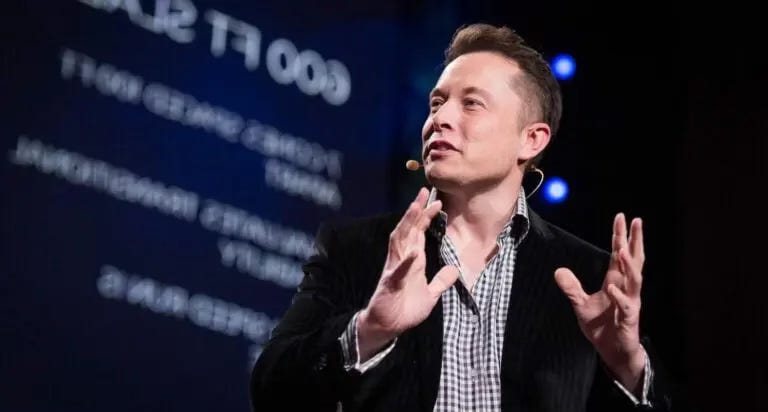
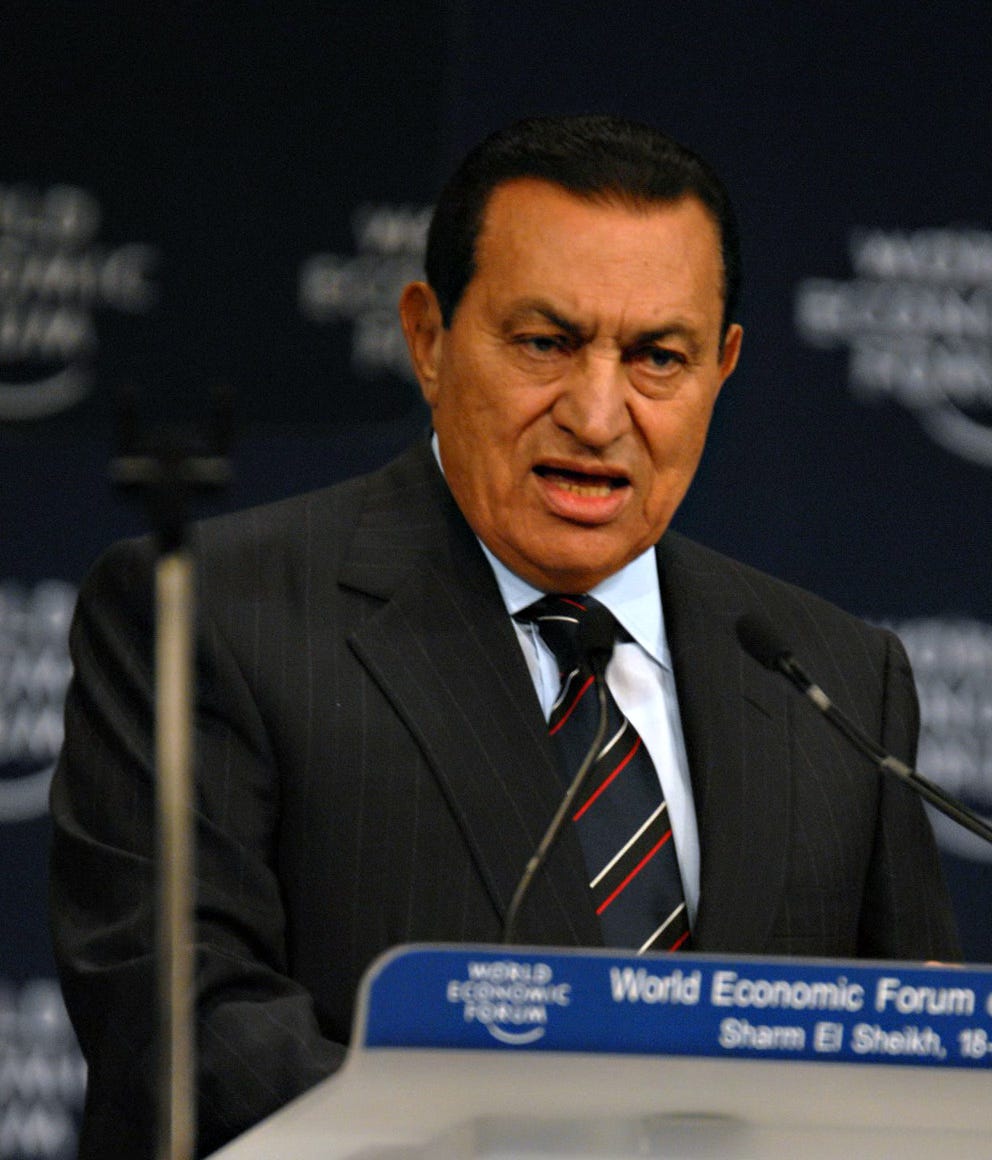
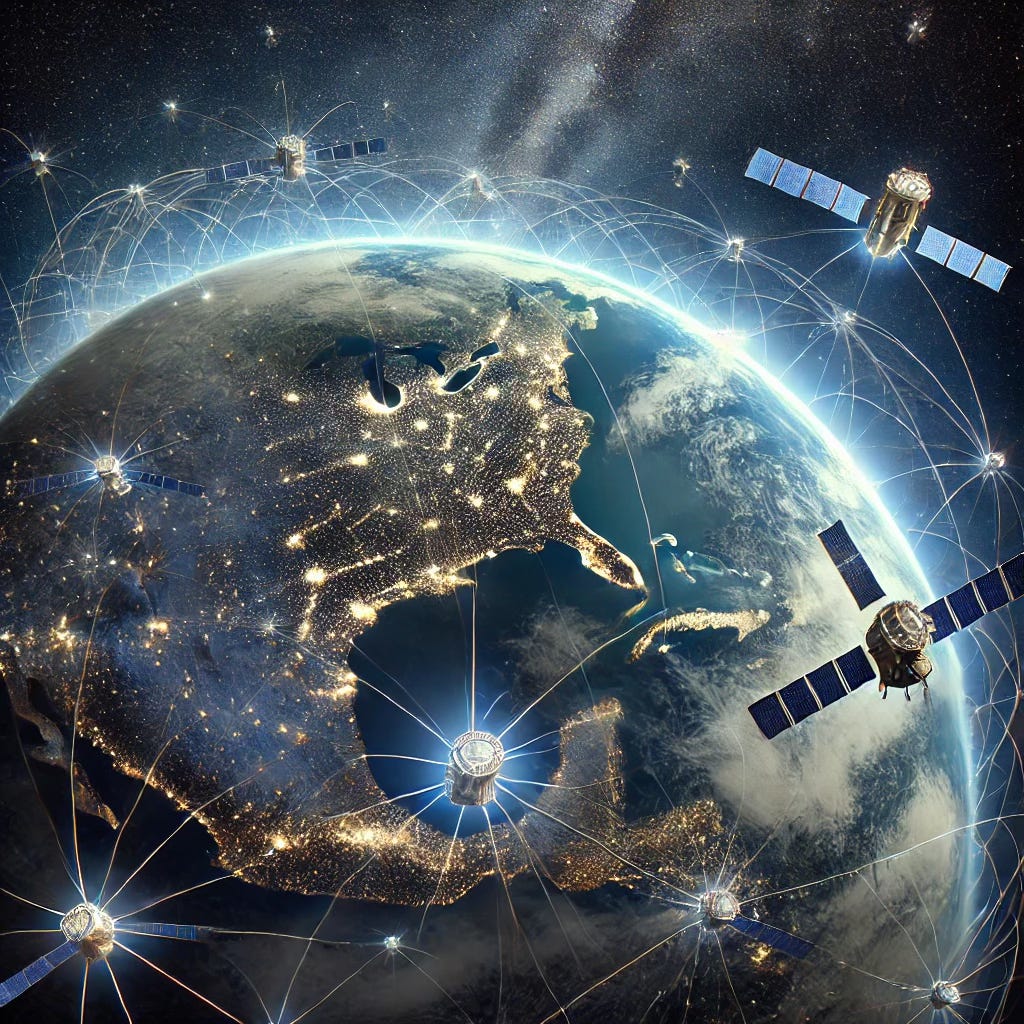
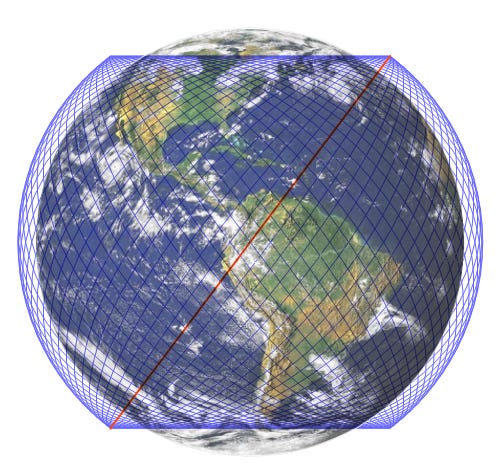







Very interesting. So many implications around the actions of one man and his companies. Will be interesting to see how it plays out over the next few years. Thanks for the clear and thorough explainer!
Sorry Olivier, but I can't share your enthusiasm about all this.
I don't trust Elon. A man whose son hates him so much that he changes gender and name so as to have nothing to do anymore with him doesn't look good to me.
In any case, no man can single-handedly guarantee freedom of speech. I would rather expect that of democratic countries. I know it's not perfect, but it's our best hope imho.
Increasing dependence on new technologies without considering the consequences is a bad choice in my opinion. We should pay more attention to electromagnetic pollution.
See this for example (from https://cellphonetaskforce.org/electrosmog-policy-brief/):
The functioning of all living organisms is regulated by their electromagnetic environment, including the magnetic field of the earth, the vertical electric field between earth and ionosphere, the global electric circuit, the Schumann resonances, etc. If the electromagnetic environment of the earth is altered, life on earth will not long survive.
Both the number of satellites in orbit and the radiation they emit are completely out of control. Some satellites already have an effective radiated power of 83 million watts. Some are capable of emitting 5,000 individual beams. More than 8,000 satellites are already in orbit, and thousands more are being sent into space by near-daily rocket launches. Not only are they exposing every square meter of land and oceans to their radiation, but they are polluting the global electric circuit, which includes our bodies, with all of their pulsations and modulation patterns.
This is degrading all of life and causing pandemics, extinctions, and forest die-off, which cannot be successfully addressed without halting the radiation in and from space